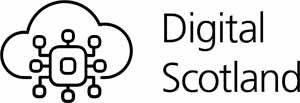
Authors
Gamification is increasingly being used by companies in Scotland to better engage with their customers, prospective customers and employees. Game-based technologies are considered to have the potential to disrupt sectors such as healthcare, financial services and energy.
|
| So, what is gamification?Gamification is the application of concepts and principles from games (for example the creation of competition through challenges and leader boards or rewarding success with prizes or points) to traditionally non-gaming pursuits. Use of gamified technologies has been shown to help promote learning, engagement and behavioural change. |
Game-based technologies in healthcareGamification is being used to successfully tackle a variety of healthcare issues, including physical fitness, medication management and physical therapy and rehabilitation. Gamified apps have been shown to be a successful means of engaging patients in their medication management. Monster Manor, a game for children with type 1 diabetes where the children win virtual coins whenever they measure their blood glucose, has proved to improve good blood sugar management. In Scotland, gamification and has been used successfully to engage the public in issues of public and personal health. Discover Glasgow is a digital trail, which aims to increase awareness of population health and health service availability in Glasgow. Created by Dundee based software company Pocket Sized Hands, users can “check in” to locations throughout Glasgow and in doing so, are provided with information about the healthcare issues and services available in that area. Continuing with the Tayside theme, Guerilla Tea, another Dundee-based company, has developed an app game called “Play to Cure: Genes in Space” in which players help to analyse genetic data. The genetic data is pulled down into the game so that by collecting a fictional resource and controlling a rocket’s progress through a hazardous space environment, players analyse the data and identify genetic issues that can lead to cancer. Guerilla Tea has partnered with Cancer Research UK in order that this data can be fed back into research. A further example of gamification in healthcare in Scotland is MindMate – an app that offers brain games and lifestyle advice, which is the brainchild of three young caregivers with a personal experience of looking after those impacted by cognitive decline. MindMate helps carers and those with memory problems stay more mentally agile for longer. | |
Use of gamification in the financial services industryGamification technologies are being used by financial services companies to assist customers with money management and to make good financial decisions. MoneyMatix, an Edinburgh based charity aims to bring financial wellbeing to families in Scotland. To do this, it provides a financial management platform, which is equipped with tools to help families with financial management and planning. This platform includes a gamified money management system that has interactive game elements that aim to encourage healthy money management. Big banking players are also taking note of the benefits of gamification. Clydesdale Bank’s 2019 “Bank to the Future” report states that “for those who find banking opaque and complex, gamifying apps and services can more easily nudge financial behaviour in a desired direction.” Gamification technology is also being Dave Romilly, owner and business development director of Waracle, a Dundee based software development company which makes banking apps and platforms notes that financial services companies are driving significant investment into developing contemporary mobile apps and are treating the customer experience as a priority. He states that gamification is a good tool to assist financial services companies to engage with existing and new customers, but notes that other emerging technologies, such as Open Banking, are also important to ensure customer retention and growth. | |
Gamification for sustainabilityNorthern Powergrid, a company which manages the electricity network for 3.9 million homes, in collaboration with Newcastle University and GeneGame has developed an app which allows their customers to win cash At periods of high demand for the grid customers signed up to the app receive an alert saying “It’s GenGame time.” The more customers can reduce their peak power consumption, the more points they earn, increasing their chance to win cash prizes online. Northern Powergrid has stated that “mobile games could become an important tool for energy companies as they seek to manage power demand and keep costs down for customers.” In Scotland, organisations including the Scottish Courts and Tribunal Service, RBS, the University of Strathclyde and the University of Glasgow have signed up to a gamification scheme for their employees, which is aimed at reducing environmental impacts. The “Jump” programme encourages employees to engage in energy saving, sustainable travel and waste reduction through the use of gamified applications. | |
Ahead of the gameScotland is home to a range of software and creative development agencies; both established and start-ups, which are ready and able to provide gamification development services. It would seem that Scotland is poised to take a spot on the gamification leader board. |










.jpg)
